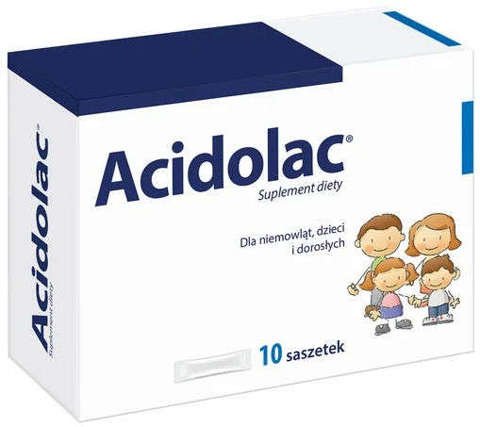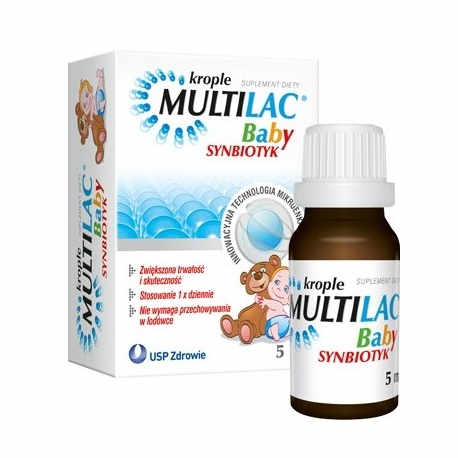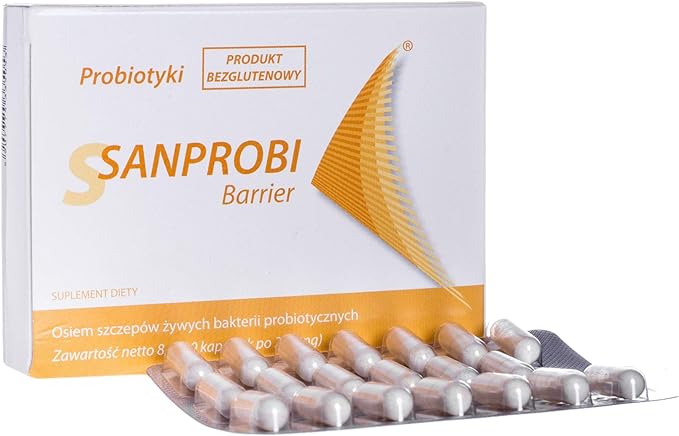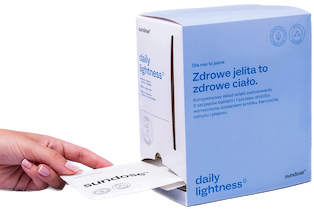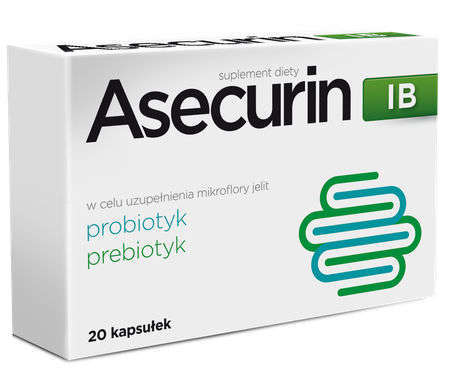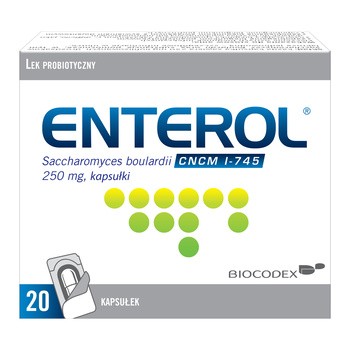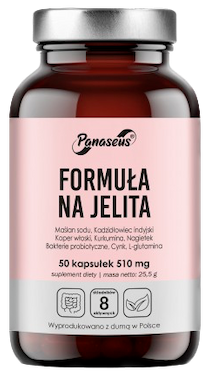Probiotic for children and adults: when to use and what it helps with
All about probiotics: what they are, when to use them and how they work.


Learn more about our editorial process
.

Learn more about our editorial process
.

Learn more about our editorial process
.

Learn more about our editorial process
.
Why you can trust us
Articles on Natu.Care are written based on scientific research, data from government websites and other reliable sources. The texts are written in cooperation with doctors, nutritionists and other health and beauty experts. Articles are reviewed before publication and during significant updates.
.Learn more about our editorial process
.Information about advertisements
Content on Natu.Care may contain links to products from the sale of which we may receive a commission. When creating content, we adhere to high editorial standards and take care to be objective about the products discussed. The presence of affiliate links is not dictated by our partners, and we select the products we review ourselves completely independently.
.Learn more about our terms and Conditions
.And to the antibiotic, a shielding probiotic - many people have heard this from their doctor. You may well have associated living bacterial cultures from TV adverts.
It's true, probiotics are the bacteria and yeast that reside most in our intestines. However, what's remarkable about them is how crucial a role they play in keeping your body healthy.
From this article you will learn:
- What probiotics are and what types of probiotics there are. .
- What probiotics are found in. .
- What ailments probiotics can help with. .
- How to take them and whether they can be overdosed. .
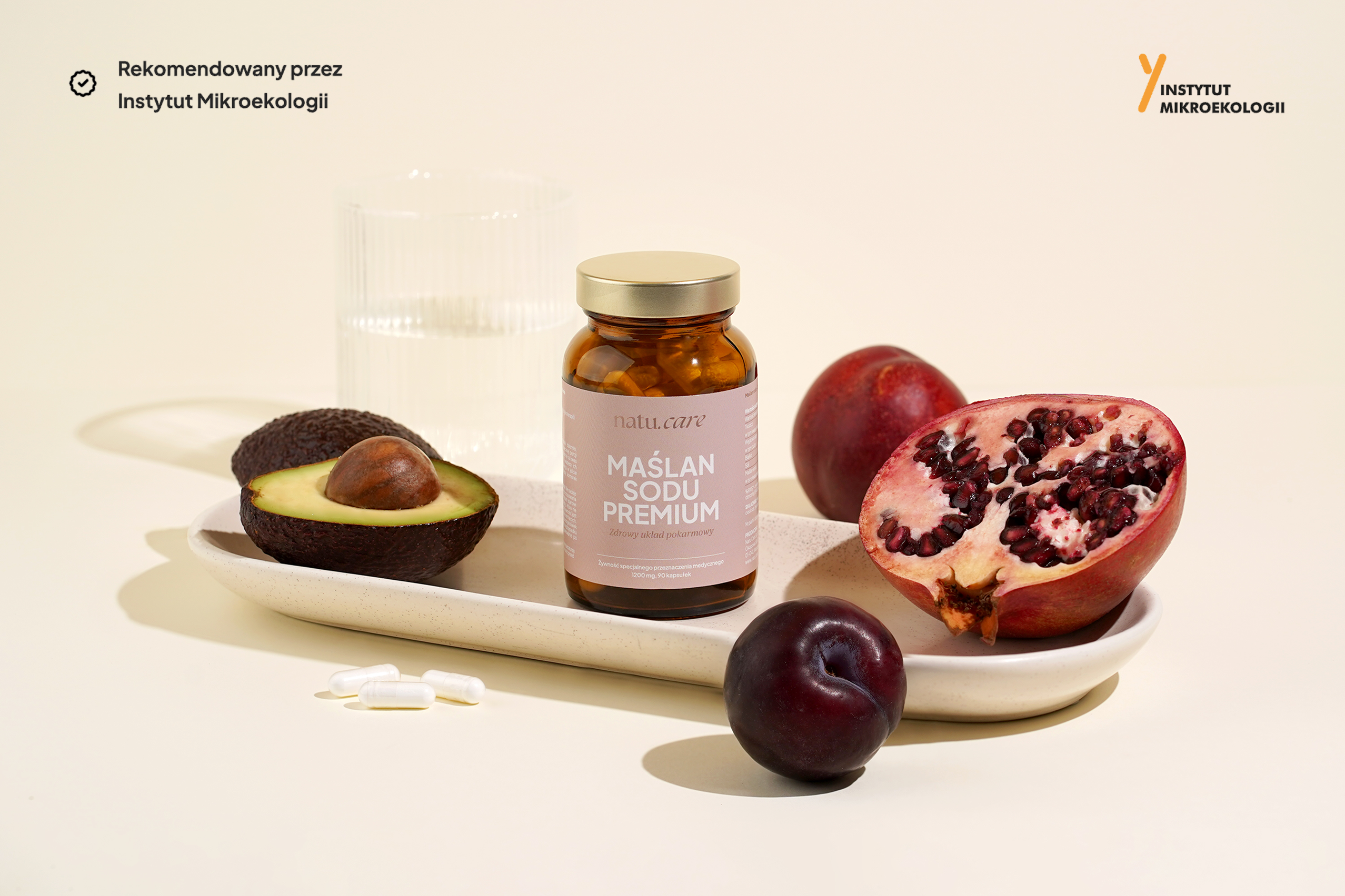
Odkryj korzyści, jakie niesie ze sobą Maślan Sodu Premium od Natu.Care!
Natu.Care Maślan Sodu Premium
Poznaj Maślan Sodu Premium – najwyższej jakości suplement wspierający zdrowie jelit. Maślan sodu pomaga w regeneracji nabłonka jelitowego, poprawia trawienie i wspiera naturalną równowagę mikroflory.
Sprawdź cenę
W końcu się lepiej czuję! Pożegnałam się ze wzdęciami i zaparciami a do tego poprawił się stan mojej cery bo zdrowe jelita to też zdrowa i piękna skóra. Polecam!@Klaudia F.
See also:
.
- Prebiotics
- Synbiotics
- Psychobiotics
- Sodium butyrate
- Antioxidants
- Adaptogens
- Best liver supplements
- Best heartburn pills
- Best over-the-counter sleep pills
What is a probiotic?
.
Probiotics are live cultures of bacteria and yeast that naturally populate the human digestive tract to form its microflora. These bacteria help digest food and assimilate nutrients from it. Their metabolic products, or postbiotics, can protect the body from pathogenic microorganismsand.
What you should keep in mind when choosing a probiotic is to pay attention to its labelling. A probiotic should have a three-member name: consisting of species, genus and strain. And it is the strain that is most important here, as the properties of specific probiotics are strain-dependent..
 .
.
Mirosława GałęckaDoctor, specialist in internal medicine from the Institute of Microecology in Poznań
Expert explains that when looking for a probiotic in a pharmacy, you should look at its composition, which should be written as follows:
- genus (e.g. Lactobacillus), .
- species (e.g. rhamnosus), .
- strain (e.g. ATCC 53103), .
Interesting facts
Foods containing probiotics were already appreciated by ancient civilisations (e.g. the ancient Egyptians), but Ilya Ilyich Mechnikovand was the first to introduce beneficial bacteria and yeast to the scientific world. He proved the health benefits of consuming fermented milk products (yoghurt and kefir) and linked them to the bacterial and yeast cultures present.
Probiotic versus prebiotic
.
Probiotics are the bacteria and yeast that live in our digestive system, and prebiotics are the undigested food residues that provide food for them. Prebiotics therefore increase the amount of probiotic bacteria in the bodyand.
.
Prebiotics include, for example, inulin, resistant starch or galacto-oligosaccharides. They can be found in onions, garlic, legumes, cold pasta or rice..
 .
.
Daria KotekDirector of Science and Promotion at the Institute of Microecology in Poznan
The combination of probiotic and prebiotic ingredients in one product creates a synbiotic.
Natural probiotic
.
Although probiotics are most often associated with the pills you buy at the pharmacy, you can also get live bacteria cultures into your body with diet. Live bacteria cultures can be found in products such as:
- yoghurts, .
- kefir, .
- buttermilk, .
- sugared milk,
- sour milk
- sauerkraut,
- sauerkraut
- sauerkraut,
- pickled cucumbers.
Some advice on probiotic-containing foods is provided by Magister of Pharmacy Ilona Krzak:
- Probiotic yogurts are those that have a specific strain of bacteria used in their production. They can be referred to as probiotics. They are usually the organic type of yoghurt.
- Probiotic yoghurts are those that have a specific strain of bacteria.
- When dealing with dairy products, it is advisable to choose less fermented ones. .
- The closer you get to the expiry date, the less live bacteria cultures you will find in the product. This is because the bacteria produce, among other things, butyric acid and lactic acid, which have a bacteriostatic effect and limit their growth in the product.
- Sauerkraut can provide probiotic bacteria provided it is pickled correctly, i.e. without air. Most probiotics are anaerobic bacteria. By making pickles small-salted (under a plate, with access to air) - the good bacteria are lost. .
It is worth noting that homemade probiotics cannot prevent, among other things, the overgrowth of Clostridium difficile, which causes inflammatory bowel disease that is dangerous and difficult to treat. Therefore, when treated with broad-spectrum antibiotics, appropriate probiotic therapy is important. In probiotic preparations, the type of strains and their quantity are accurately labelled, something we are unable to assess in food products..
 .
.
Ilona Krzak Master of Pharmacy
Additionally, it is worth mentioning that the effectiveness of probiotics depends on whether they reach their site of action intact, avoiding destruction by gastric acid or bile acid salts.

Mirosława GałęckaDoctor, specialist in internal medicine from the Institute of Microecology in Poznań
"Therefore, for a specific clinical action, it is advisable to use probiotics in the form of pharmaceutical preparations containing probiotic microorganisms that are encapsulated and coated so that they reach the large intestine and colonise there. And treat probiotic foods as support in the therapeutic process," adds Mirosława Gałęcka.
Types of probiotics
.
There are seven basic strains of probioticsand:
- Lactobacillus, .
- Bifidobacterium, .
- Saccharomyces, .
- Streptococcus, .
- Enterococcus,
- Escherichia,
- Bacillus; .
The first two - Lactobacillus and Bifidobacterium are lactic acid bacteria - most commonly found in diet supplements and OTC (over-the-counter) medicines. It is easy to supply them with food, just consume lacto-fermented productsand.
Each probiotic strain may have specific effects and differ from the others in terms of the effects of its supplementation. In the following article, you will learn which probiotic strains to use for which ailments.
Magister of Pharmacy Ilona Krzak lists what criteria a probiotic should meet:
- must have the ability to colonise the gut, .
- Must be resistant to gastric juice and bile acids, .
- Must have the ability to adhere to the intestinal walls,
- Must not produce harmful bacteria.
- must not produce metabolic products that are harmful to humans, .
Who can use probiotics?
.
Because probiotics are microorganisms that occur naturally in the body - anyone can use them, regardless of age. The important thing is to take them in the right quantities and to follow your doctor's instructions or the manufacturer's recommendations in this regard.
Probiotics for babies
.
The intestinal microflora in infants is only just developing. Diarrhoea, intestinal colic or constipation in them may be the result of disorders related to the microbiotaand. If this is the case, a probiotic may be helpful, but it is imperative to consult with a neonatologist or paediatrician.
It has been shown that adequate development of the gut microflora can reduce the risk of allergies, as well as the risk of developing asthma.
 .
.
Ilona Krzak Master of Pharmacy
See the best probiotics for babies:
.Polpharma Acidolac
Product description
Probiotic enriched with the addition of prebioticsós to help restore the intestinal bacterial flora. An interesting form of administration, i.e. sachets with powder to be dissolved in water or consumed directly. The preparation will prove useful for children whoóre not keen on taking drops.
.The dietary supplement can also be administered to infants.
.Pros and cons
Probiotic enriched with the addition of prebioticsós to help restore the intestinal bacterial flora. An interesting form of administration, i.e. sachets with powder to be dissolved in water or consumed directly. The preparation will prove useful for children whoóre not keen on taking drops.
.The dietary supplement can also be administered to infants.
.Additional information
Probiotic enriched with the addition of prebioticsós to help restore the intestinal bacterial flora. An interesting form of administration, i.e. sachets with powder to be dissolved in water or consumed directly. The preparation will prove useful for children whoóre not keen on taking drops.
.The dietary supplement can also be administered to infants.
.Multilac Baby Synbiotic
Product description
Synbiotic drops intended for children and infants. In addition to probiotic bacteria strains, it also contains prebiotics, which promote the proliferation of beneficial microorganisms in the intestines.
Synbiotic drops for children and infants.
Synbiotic contains MURE technology, whichóra improves the survival of bacterial cultures.
Pros and cons
Synbiotic drops intended for children and infants. In addition to probiotic bacteria strains, it also contains prebiotics, which promote the proliferation of beneficial microorganisms in the intestines.
Synbiotic drops for children and infants.
Synbiotic contains MURE technology, whichóra improves the survival of bacterial cultures.
Additional information
Synbiotic drops intended for children and infants. In addition to probiotic bacteria strains, it also contains prebiotics, which promote the proliferation of beneficial microorganisms in the intestines.
Synbiotic drops for children and infants.
Synbiotic contains MURE technology, whichóra improves the survival of bacterial cultures.
SANPROBI Barrier Probiotics
Product description
A multi-strain probiotic in the form of a food supplement. It is intended for children over the age of three. The variety of probioticsós contained in it ensures a comprehensive effect of the product on the organism. The live bacteria cultures it contains take care of the intestinal microflora, have a positive effect on digestion and increase natural immunity.
Pros and cons
A multi-strain probiotic in the form of a food supplement. It is intended for children over the age of three. The variety of probioticsós contained in it ensures a comprehensive effect of the product on the organism. The live bacteria cultures it contains take care of the intestinal microflora, have a positive effect on digestion and increase natural immunity.
Additional information
A multi-strain probiotic in the form of a food supplement. It is intended for children over the age of three. The variety of probioticsós contained in it ensures a comprehensive effect of the product on the organism. The live bacteria cultures it contains take care of the intestinal microflora, have a positive effect on digestion and increase natural immunity.
Vivomixx Microcapsules
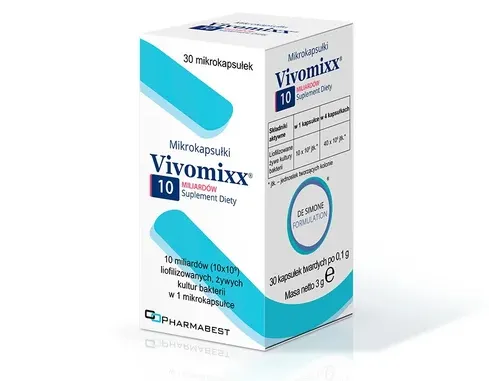
- Probiotic strains: Streptococcus thermophilus, Bifidobacterium breve, Bifidobacterium longum, Bifidobacterium infantis, Lactobacillus acidophilus, Lactobacillus plantarum, Lactobacillus paracasei, Lactobacillus delbrueckii subsp. bulgaricus .
- Additional active ingredients: none .
- Form: capsules .
- Dosage: 1–4 capsules daily .
- Sufficient for: 7–30 days .
Product description
A dietary supplement containing a complex of different strainsóof probioticsós. The diversified types of bacterial cultures will help to effectively rebuild the microbiota of the digestive system, improve intestinal function and support the body's natural immunity.
Probiotic supplement.
Pros and cons
A dietary supplement containing a complex of different strainsóof probioticsós. The diversified types of bacterial cultures will help to effectively rebuild the microbiota of the digestive system, improve intestinal function and support the body's natural immunity.
Probiotic supplement.
Additional information
A dietary supplement containing a complex of different strainsóof probioticsós. The diversified types of bacterial cultures will help to effectively rebuild the microbiota of the digestive system, improve intestinal function and support the body's natural immunity.
Probiotic supplement.
Sundose° Daily Lightness°
Product description
Sundose° Daily Lightness° is a formula thatós supports the stomach and liver, reduces the frequency of gasóing and bloating, and supports optimal digestion. The formula contains no unnecessary additivesós, and the composition of the active ingredients (e.g. curcumin with piperine) mutually enhances their absorption.
The dietary supplement from Sundose comes in two flavour versions: orange and green.
Pros and cons
Sundose° Daily Lightness° is a formula thatós supports the stomach and liver, reduces the frequency of gasóing and bloating, and supports optimal digestion. The formula contains no unnecessary additivesós, and the composition of the active ingredients (e.g. curcumin with piperine) mutually enhances their absorption.
The dietary supplement from Sundose comes in two flavour versions: orange and green.
Additional information
Sundose° Daily Lightness° is a formula thatós supports the stomach and liver, reduces the frequency of gasóing and bloating, and supports optimal digestion. The formula contains no unnecessary additivesós, and the composition of the active ingredients (e.g. curcumin with piperine) mutually enhances their absorption.
The dietary supplement from Sundose comes in two flavour versions: orange and green.
Sundose° Daily Lightness° is a formula thatós supports the stomach and liver, reduces the frequency of gasóing and bloating, and supports optimal digestion. The formula contains no unnecessary additivesós, and the composition of the active ingredients (e.g. curcumin with piperine) mutually enhances their absorption.
The dietary supplement from Sundose comes in two flavour versions: orange and green.
Asecurin IB
Product description
Asecurin IB is a synbiotic, i.e. a combination of a probiotic and a prebiotic. It contains bacteria and yeast to support the intestines and digestive system, as well as inulin, whichós food for these microorganisms. The addition of a prebiotic supports and accelerates the growth of beneficial bacterial flora in the intestines.
Pros and cons
Asecurin IB is a synbiotic, i.e. a combination of a probiotic and a prebiotic. It contains bacteria and yeast to support the intestines and digestive system, as well as inulin, whichós food for these microorganisms. The addition of a prebiotic supports and accelerates the growth of beneficial bacterial flora in the intestines.
Additional information
Asecurin IB is a synbiotic, i.e. a combination of a probiotic and a prebiotic. It contains bacteria and yeast to support the intestines and digestive system, as well as inulin, whichós food for these microorganisms. The addition of a prebiotic supports and accelerates the growth of beneficial bacterial flora in the intestines.
Biocodex Enterol
Product description
Enterol is an OTC medicine containing a strain of yeastów particularlyóhelpful in the treatment of diarrhoea caused by infections or so-called travel diarrhoea. It is also recommended as a protective treatment of the intestines during antibiotic intake.
.
Pros and cons
Enterol is an OTC medicine containing a strain of yeastów particularlyóhelpful in the treatment of diarrhoea caused by infections or so-called travel diarrhoea. It is also recommended as a protective treatment of the intestines during antibiotic intake.
.
Additional information
Enterol is an OTC medicine containing a strain of yeastów particularlyóhelpful in the treatment of diarrhoea caused by infections or so-called travel diarrhoea. It is also recommended as a protective treatment of the intestines during antibiotic intake.
.
Enterol is an OTC medicine containing a strain of yeastów particularlyóhelpful in the treatment of diarrhoea caused by infections or so-called travel diarrhoea. It is also recommended as a protective treatment of the intestines during antibiotic intake.
.
Product description
Using Panaseus Digestive Formula can help improve intestinal health by supporting the intestinal barrier, reducing inflammation, protecting against damage and restoring healthy intestinal microflora.
Experience a rós difference in gut function with plant extracts, amino acids and probiotic bacteria.
Pros and cons
Using Panaseus Digestive Formula can help improve intestinal health by supporting the intestinal barrier, reducing inflammation, protecting against damage and restoring healthy intestinal microflora.
Experience a rós difference in gut function with plant extracts, amino acids and probiotic bacteria.
Additional information
Using Panaseus Digestive Formula can help improve intestinal health by supporting the intestinal barrier, reducing inflammation, protecting against damage and restoring healthy intestinal microflora.
Experience a rós difference in gut function with plant extracts, amino acids and probiotic bacteria.
Probiotics for children
.In older children, probiotics may be useful to protect the intestinal microbiota during antibiotic therapy or, independently, to improve immunityand. For the youngest children, probiotics in drops or powder form to be dissolved in water are particularly recommended, as this is an easy form of administration for them.
Children, especially those attending nursery school, often catch gastrointestinal infections. The prophylactic introduction of a probiotic can protect little ones from developing an illness. It has been shown that probiotic therapy can reduce the risk of respiratory illness..
 .
.
Ilona Krzak Master of Pharmacy
See the best probiotics for children:
.Probiotic for adults
.Stress, poor diet, certain medications and illness can devastate the beneficial bacteria and yeasts that inhabit the gut. This has a direct impact on their functioning, and this translates into the health of the whole body.
It is in the gut that most of the nutrients are absorbed, without which we cannot function properly. And although it's hard to believe, there is a growing body of research suggesting that what happens in the final sections of our digestive tract can even affect mental healthand.
.
Adults, especially seniors, often suffer from a variety of chronic conditions and take various medications as a result. Some of these can lead to gastrointestinal disorders and further disrupt the microbiome..
 .
.
Ilona Krzak Master of Pharmacy
See the best products for adults:
See also:
.What does a probiotic help with?
.Depending on the specific strain, probiotics can support our body with many ailments. They rebuild the intestinal bacterial flora, support digestive processes and protect the digestive system. They can also speed up metabolism and lower bad cholesterol (LDL). Probiotic bacteria also help with diarrhoea and uro-gynaecological infections.
Probiotics for gut and digestion
.Probiotics support your digestive system in two ways. Firstly, they make its job easier by taking part in breaking down food into intermediates. This allows the nutrients in food to be better absorbed into the body.
>Secondly, they fight pathogenic microorganisms by competing with them for food and by producing postbiotics, which can be lethal to some germs. This applies, for example, to certain rotaviruses, responsible for diarrhoea.
Supporting the digestive system can also help with other digestive ailments, such as:
- constipation, .
- congestion, .
- gas, .
- abdominal pain, .
- lactose intolerance, .
In support of the gut and digestive system, you will be supported by prebiotics from the strains Lactobacillus and Bifidobacterium.
Also, numerous studies suggest that these probiotic strains may alleviate the discomfort of irritable bowel syndrome (IBS) in both adults and children. Study participants who took the probiotics reported a lower intensity of symptoms. There was a decrease in the severity of abdominal pain, frequency of diarrhoea and bloating and an improvement in overall quality of lifeand.
The 2021 study, meanwhile, looked at how taking probiotics and implementing virtual healthcare affected patients with ulcerative colitis. The control group received standard medication, administered for exacerbations of the disease, and received standard medical supervision (by telephone).
The second group was a group of patients with ulcerative colitis.
The second group took a probiotic in addition to the medication. In addition, she was in contact with healthcare professionals via WeChat messaging. The study showed an improvement in nutritional markers and a decrease in inflammatory markers in the group taking the probiotics in addition. In surveys, patients also rated their quality of life betterand.
Keep in mind, however, that for patients with SIBO (i.e. bacterial overgrowth in the small intestine), bacteria from the genus Lactobacillus will not be very beneficial, as they may exacerbate symptoms. The safest choice will be probiotic strains Saccharomyces boulardii and bacteria of the genus Bifidobacterium..
 .
.
Mirosława GałęckaDoctor, specialist in internal medicine from the Institute of Microecology in Poznań
Probiotic for reflux
.According to estimates, reflux disease may affect up to ⅓ of the world's populationand. Studies suggest that taking probiotics can reduce the burning sensation in the oesophagus and alleviate other symptoms associated with heartburn .
Probiotics of the Lactobacillus strain may reduce gastric juice secretion, while the Bifidobacterium strain promotes the production of mucin, which protects the stomach from its acidic environmentand.
Probiotic for intimate infections
.It appears that the use of probiotics extends beyond the digestive system. They are also indicated to have a positive effect when treating intimate infections. Live cultures of bacteria and yeast help to maintain an adequate vaginal bacterial floraand.
Bacteria of the strain Lactobacillus are also present in the female reproductive system, where they support the protective functions of the vaginal mucosa. The substances produced by these probiotics can inhibit the growth of pathogenic microorganisms. Probiotics also contribute to maintaining normal vaginal pH levelsand.
Research suggests that probiotics may help treat human papilloma virus (HPV) and bacterial vaginitis .
Probiotic for urinary tract
.Urinary tract inflammation particularly affects women. This is because the female urinary tract is closely related to the reproductive tract (and anatomically more prone to infection). Maintaining a healthy microbiota through probiotics can be helpful in preventing urinary tract infectionsand.
The beneficial effect of probiotics on the urinary tract may be related to their influence on the appropriate pH, which is not friendly to pathogenic organisms, and the production of substances that have bactericidal and virucidal effects and make it difficult for these microorganisms to adhere to tissues .
.As a result, pathological microorganisms are more easily flushed out of the body and, in the case of the urinary tract, are simply excreted from the body along with the urine.
.Probiotic for weight loss
.Deficiencies in gut microflora may be a factor in obesity. Results from a review of 27 studies examining the effects of probiotic and synbiotic supplementation on weight loss suggest that bacterial cultures may promote weight lossand.
The probiotic strains administered to participants were predominantly Lactobacillus and Bifidobacterium. Some studies have also used a strain of Streptococcusand.
Akkermansia muciniphila is a promising probiotic. It is difficult to break down intestinal mucus. A. muciniphila can produce acetate and propionate, which have beneficial effects on the human body. Research suggests an inverse correlation between the abundance of Akkermansia muciniphila and diseases such as inflammatory bowel disease (IBD), obesity and diabetes.
 .
.
Ilona Krzak Master of Pharmacy
Clinical trials involving obese and diabetic patients are underway and preliminary results are very promising, adds pharmacist.
Probiotics for immunity
.Probiotics can improve immunity by strengthening the protective barrier of the intestinal mucosa and vaginal mucosa, making it more difficult for germs to enter the body. In addition, the products of their metabolism are toxic substances to some bacteria and virusesand.
In addition, probiotics have a beneficial effect on phagocytosis, i.e. the 'eating' of pathogenic organisms by immune cells. Probiotics also show positive effects on the function of T-lymphocytes, which are responsible for destroying infected body cells and cancer cellsand.
A 2021 study suggests that a strain of Bifidobacterium may reduce the risk of upper respiratory tract infections . A 2020 study on a group of marathon runners suggests similar findings - long-term probiotic supplementation reduced the incidence of upper respiratory tract infections in the study group by 27% .
The improved immune response in active individuals, however, is not confirmed by another study involving athletes. The probiotic-taking group showed only a slight increase in T lymphocytes, monocytes and leukocytes .
The physiological intestinal microbiota includes non-pathogenic strains of Escherichia coli and Enterococcus ssp. They are not present in large numbers, but show immunostimulating properties. The bacteria Enterococcus faecalis stimulate plasmocytes in the intestinal epithelium to synthesise secretory immunoglobulin A (sIgA)..
 .
.
Mirosława GałęckaDoctor, specialist in internal medicine from the Institute of Microecology in Poznań
"This immunoglobulin is then secreted on all epithelia, for example in the respiratory tract and genitourinary tract. Secreted immunoglobulin A affects the adhesion of pathogenic bacteria, viruses and fungi to the surface of mucous membranes, and contributes to the neutralisation of bacterial toxins," explains expert.
Probiotic for acne
.Because of their antibacterial properties, probiotics can benefit acne treatmentand. In vitro studies have shown that strains of Streptococcus and Lactococcus inhibit the growth of bacteria and streptococci responsible for inflammatory skin lesionsand.
Probiotics may also support acne treatment through their beneficial effects on the immune system, which can potentially speed up the healing of wounds, pimples and blemishes .
.It should be noted, however, that there are currently still quite few studies focusing on the effects of probiotics on acne treatment and the skin microbiota .
.Probiotics for stress
.Stress adversely affects the whole body - the immune system is also affected. Taking probiotics, which support the work of the immune system, can help to combat the lowering of the body's immune system in response to prolonged stress.
Probiotics are a good way to combat stress.
For many people, stressful situations are also associated with stomach complaints such as diarrhoea, abdominal pain, nausea or constipation. Probiotics can alleviate these discomforts by regulating the intestines and digestive system.
Probiotics for depression
.A study from 2023 suggests that administration of a mixture of probiotic bacterial strains may alleviate symptoms of depression and reduce anxiety disordersand. A review of studies conducted between 2003 and 2019 also indicates a possible positive effect of gut microflora on the condition of adult patients with depression .
How is it possible that what happens in your gut can affect your brain? A 2017 review of studies revealed a bidirectional relationship between the gastrointestinal tract and the central nervous system, known as the gut-brain .
Psychobiotics are probiotics that act on the brain-gut axis. Psychobiotics, which contain just these bacterial strains in their composition, alleviate anxiety, minimise stress levels, relieve abdominal pain or nausea caused by stress, and support emotional balance.
 .
.
Mirosława GałęckaDoctor, specialist in internal medicine from the Institute of Microecology in Poznań
"The positive effect stands out especially for the bacterial strains Lactobacillus rhamnosus, Lactobacillus helveticus R0052 and Bifidobacterium longum R0175," adds Daria Kotek.
The state of the gut and the microbiota that resides within it has a major impact on our wellbeing, including our mood, or behaviour. There are studies that show that people on the autism spectrum have a less diverse microbial flora. Additionally, the state of the microbiota and past illnesses have an impact on the development of neurodegenerative diseases..
 .
.
Ilona Krzak Master of Pharmacy
It appears that gut-dwelling microbes via endocrine, metabolic and immunological pathways are able to transmit specific information to the brain. Of course, information is to be understood here as chemical signals associated with substances produced by probiotic bacteriaand. In a nutshell, however, it can be said that the wellbeing of our gut is highly relevant to the wellbeing of your brain.
Gut bacteria are capable of synthesising serotonin. More than 80% of its endogenous form comes from the gut. Serotonin is a key mediator of the central nervous system and a disturbance in its amount is observed in depression, among other things..
 .
.
Ilona Krzak Master of Pharmacy
When is it worth taking a probiotic?
.Probiotics can be taken prophylactically to protect the digestive system and support immunity. There are also instances when their use is recommended by your doctor - e.g. during antibiotic therapy. Live bacterial cultures can also be helpful if you have indigestion or are taking other medications that may irritate your intestines.
Interesting fact: there are probiotics that prevent the development of tooth decay..
 .
.
Ilona Krzak Master of Pharmacy
Probiotics when on antibiotics
.Antibiotics kill bacteria or inhibit their growth. Unfortunately, they are not smart enough to limit their destructive urges to only the pathogenic ones. Taking antibiotics also ravages the beneficial bacterial cultures that populate your body.
Taking a probiotic while on antibiotic therapy will help you 'recover' the bacteria that the drug has destroyed. This will protect you from diarrhoea and other gastrointestinal ailments.
Post-antibiotic diarrhoea can occur even a month or two after stopping treatment. In addition, some antibiotics show a so-called post-antibiotic effect or have a long half-life and continue to work despite the cessation of antibiotic therapy..
 .
.
Ilona Krzak Master of Pharmacy
Probiotic for urological and gynaecological problems
.Probiotics may be useful if:
.- you are going to a swimming pool, .
- you are facing a urological or gynaecological procedure, .
- you frequently catch intimate infections or urinary tract infections, .
- you are treating or have just finished treating these ailments, .
In such situations, it is worth reaching for a probiotic containing strains of bacteria found in the vagina and urinary tract. Thanks to them, you will strengthen the natural protective barrier of these areas, and the beneficial bacterial cultures will make it more difficult for pathogenic microbes to colonise.
Probiotics for the vagina and urinary tract.
Probiotic after caesarean section
.Research has shown that babies born by caesarean section have a different gut microflora than those born naturally. This is because the female reproductive tract is populated by probiotics. By passing through the birth tract, the newborn takes some of these beneficial microorganisms for herself. And it is these that help to establish a population of its own intestinal floraand.
When having a caesarean section, the baby doesn't go through this route, so it doesn't have the time to receive this specific infection from mum. Using probiotics in newborns after caesarean sections can protect them from diarrhoea and colic by helping to build up their gut microbiotaand.
However, you should always consult your doctor on whether to give your newborn baby probiotics. Also, your bacterial flora can be transferred to your baby, so it is up to your doctor to determine the right course of action.
How to take a probiotic?
.Depending on the manufacturer's recommendations, probiotic supplements are taken 1-2 times a day. If the daily dose is one dose, it is advisable to take it in the evening when intestinal peristalsis slows down. If two doses are necessary, then take them in the morning and evening.
.Probiotics are worth taking with or about half an hour before a meal. The survival of the bacteria they contain in the digestive system is then improved. However, it is important that the food is not hot.
.If you are taking probiotics as a cover with an antibiotic, they should usually be taken before the antibiotic is taken.
.Can a probiotic be overdosed?
.Yes, it is possible to overdose on a probiotic, because what's too much is unhealthy. An overdose can lead to an overgrowth of intestinal bacterial flora, resulting in SIBO syndrome. SIBO syndrome is a bacterial proliferation syndrome of the small intestine. It manifests itself by impairing the digestion and absorption of nutrients from foodand.
To avoid such consequences, take probiotics as recommended by the manufacturer or as directed by your doctor and never exceed the recommended daily dose.
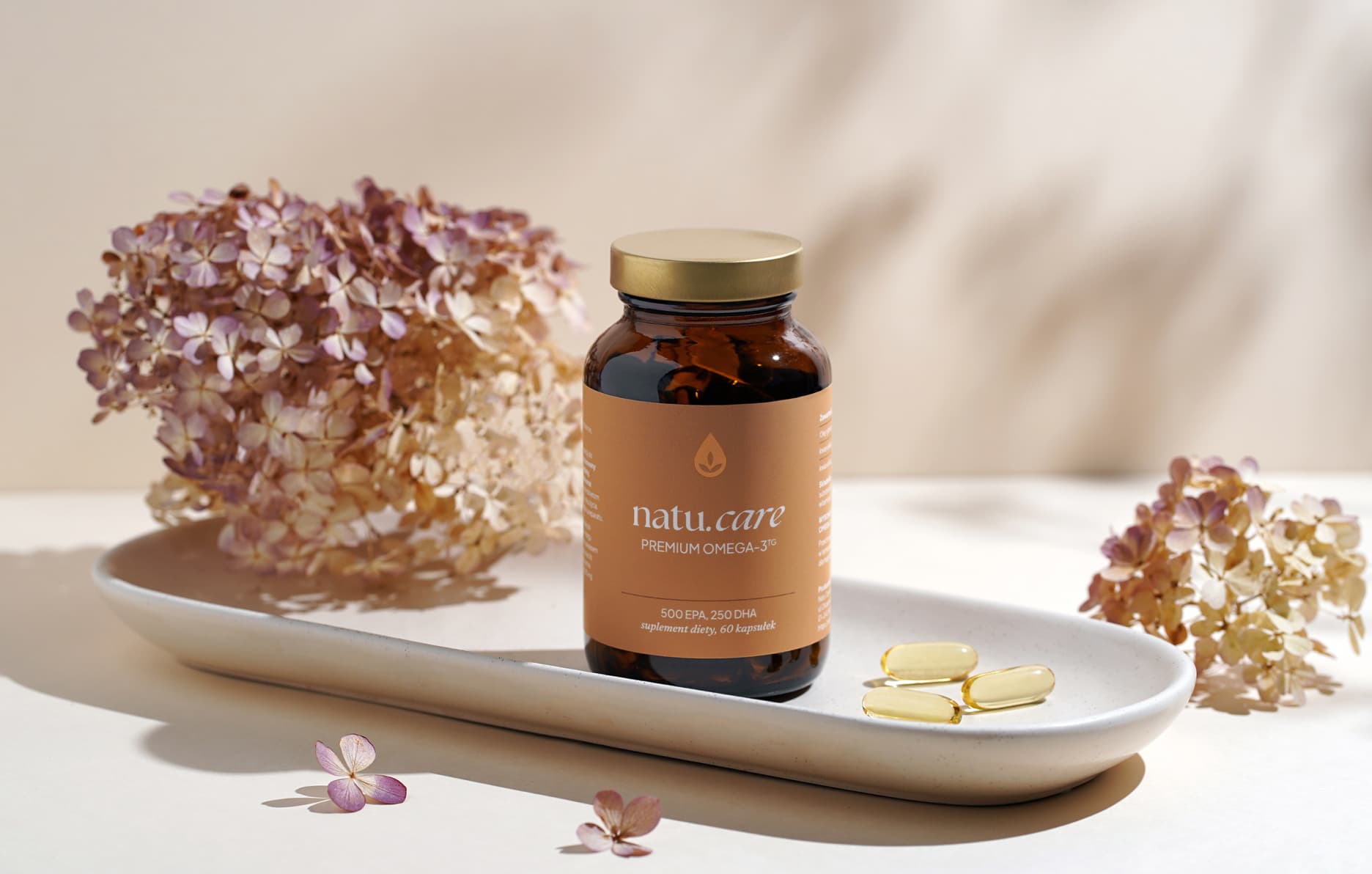
Sprawdź, za co pokochały go tysiące klientek Natu.Care Premium Omega-3ᵀᴳ -15% z kodem BLOG15
Natu.Care Omega-3ᵀᴳ Premium
Natu.Care Omega-3ᵀᴳ Premium dla zdrowia serca, mózgu i odporności. Najlepsza przyswajalność. Optymalna dawka 750 mg. Przebadana przez niezależne laboratorium.
Zobacz więcej
Produkt ma super skład, transparentną etykietę i co dla mnie jest ważne – małe kapsułki do połknięcia. Nie ma też nieprzyjemnego efektu odbijania rybą, który miałam spożywając inne produkty. Widzę znaczną poprawę odporności. Polecam!@Kasia P.
Fromsee also:
.Summary
.- Probiotics are live cultures of beneficial bacteria and yeasts that naturally inhabit our bodies.
- Probiotics are the most important bacteria and yeasts that naturally inhabit our bodies.
- The most important strains of probiotics are Lactobacillus and Bifidobacterium. .
- To support your gut microflora, you can consume lacto-fermented products, pickles or dietary supplements containing the appropriate strains of bacteria. .
- Probiotics can be taken by both adults and children. .
- Probiotics support the functioning of the intestines, the digestive system and also influence immunity.
- Probiotics can be taken by adults and children.
- Living cultures of bacteria and yeast will support you with antibiotic therapy, urinary and genital tract problems and gastric problems.
- When taking probiotics, follow the dosage specified by the manufacturer or your doctor's instructions. .
FAQ
.Do you need to take a probiotic while on furagin?
.Furagin is not an antibiotic, so taking probiotics shieldingly is not necessary. Its action is directed at facilitating the flushing out of bacteria from the urinary tract. Probiotics can help with this, as some strains of probiotics also help rid the body of pathogenic microorganisms and inhibit their proliferation.
Is Colostrum a probiotic?
.Colostrum is a preparation that contains a blend of vitamins, minerals and probiotic bacteria. According to the WHO definition, a probiotic is a preparation that contains live microorganisms that, in sufficient quantity, have a beneficial effect on health.
Is Enterol a probiotic?
.Whether a preparation can be called a probiotic has not been legally standardised. We can only refer to the WHO definition, according to which a probiotic contains live microorganisms that induce a benefit to health if given in the right amount. Enterol contains freeze-dried strains of probiotic yeast, which can help treat diarrhoea.
Whether or not to take a probiotic while on Xifaxan?
.Xifaxan is an antibiotic that is used, among other things, for SIBO, or small intestinal bacterial overgrowth syndrome. If you are taking this antibiotic for this very reason, do not start probiotic supplementation on your own - be sure to consult your doctor.
Florcontrol - is it a probiotic?
.According to the WHO definition, a probiotic is a preparation containing live micro-organisms that (when administered in the correct dose) show a beneficial effect on health. Florcontrol is a formulation containing a blend of probiotic bacteria, derived from strains Lactobacillus and Bifidobacterium.
Is it okay to drink alcohol while taking a probiotic?
.It is not recommended to drink alcohol while taking a probiotic. Alcohol can destroy the gut microflora that you want to rebuild with the probiotic. Consuming it during probiotic therapy therefore misses the point. Try to refrain from drinking alcohol for the duration of the intake of beneficial bacteria.
What probiotic to choose before going to Egypt?
.If you fear Pharaoh's Revenge, you may want to take a probiotic containing a strain of Saccharomyces with you on your trip to Egypt. This is a yeast that is helpful against travellers' diarrhoea. Strains of lactic acid bacteria, namely Bifidobacterium and Lactobacillus, will also be suitable. They will help protect your intestines from exotic microorganisms.
What probiotic to choose before travelling to Turkey?
.When travelling to exotic countries such as Turkey, it is advisable to take probiotic blends containing strains of Bifidobacterium, Lactobacillus and Saccharomyces. Remember that their supplementation is recommended to start before you leave, so that your gut microbiota has time to strengthen itself before coming into contact with unfamiliar germs.
Sources
.See all
.Álvarez-Arraño, V., & Martín-Peláez, S. (2021). Effects of Probiotics and Synbiotics on Weight Loss in Subjects with Overweight or Obesity: A Systematic Review. Nutrients, 13(10), Article 10. https://doi.org/10.3390/nu13103627
Amara, A. A., & Shibl, A. (2015). Role of Probiotics in health improvement, infection control and disease treatment and management. Saudi Pharmaceutical Journal, 23(2), 107-114. https://doi.org/10.1016/j.jsps.2013.07.001
Batatinha, H., Tavares-Silva, E., Leite, G. S. F., Resende, A. S., Albuquerque, J. A. T., Arslanian, C., Fock, R. A., Lancha, A. H., Lira, F. S., Krüger, K., Thomatieli-Santos, R., & Rosa-Neto, J. C. (2020). Probiotic supplementation in marathoners and its impact on lymphocyte population and function after a marathon: A randomized placebo-controlled double-blind study. Scientific Reports, 10(1), Article 1. https://doi.org/10.1038/s41598-020-75464-0
Cheng, J., & Ouwehand, A. C. (2020). Gastroesophageal Reflux Disease and Probiotics: A Systematic Review. Nutrients, 12(1), Article 1. https://doi.org/10.3390/nu12010132
Chilicka, K., Dzieńdziora-Urbińska, I., Szyguła, R., Asanova, B., & Nowicka, D. (2022). Microbiome and Probiotics in Acne Vulgaris-A Narrative Review. Life, 12(3), Article 3. https://doi.org/10.3390/life12030422
Cribby, S., Taylor, M., & Reid, G. (2009). Vaginal Microbiota and the Use of Probiotics. Interdisciplinary Perspectives on Infectious Diseases, 2008, e256490. https://doi.org/10.1155/2008/256490
Das, T. K., Pradhan, S., Chakrabarti, S., Mondal, K. C., & Ghosh, K. (2022). Current status of probiotic and related health benefits. Applied Food Research, 2(2), 100185. https://doi.org/10.1016/j.afres.2022.100185
Fatahi, S., Hosseini, A., Sohouli, M. H., Sayyari, A., Khatami, K., Farsani, Z. F., Amiri, H., Dara, N., de Souza, I. G. O., & Santos, H. O. (2022). Effects of probiotic supplementation on abdominal pain severity in pediatric patients with irritable bowel syndrome: A systematic review and meta-analysis of randomized clinical trials. World Journal of Pediatrics, 18(5), 320-332. https://doi.org/10.1007/s12519-022-00516-6
Kechagia, M., Basoulis, D., Konstantopoulou, S., Dimitriadi, D., Gyftopoulou, K., Skarmoutsou, N., & Fakiri, E. M. (2013). Health Benefits of Probiotics: A Review. International Scholarly Research Notices, 2013, e481651. https://doi.org/10.5402/2013/481651
Kober, M.-M., & Bowe, W. P. (2015). The effect of probiotics on immune regulation, acne, and photoaging. International Journal of Women's Dermatology, 1(2), 85-89. https://doi.org/10.1016/j.ijwd.2015.02.001
Liu, W., Xie, Y., Li, Y., Zheng, L., Xiao, Q., Zhou, X., Li, Q., Yang, N., Zuo, K., Xu, T., Lu, N.-H., & Zhang, H. (2022). Protocol of a randomized, double-blind, placebo-controlled study of the effect of probiotics on the gut microbiome of patients with gastro-oesophageal reflux disease treated with rabeprazole. BMC Gastroenterology, 22(1), 255. https://doi.org/10.1186/s12876-022-02320-y
Markowska-Jędra, A. (2020, December 8). Gut-brain axis. NeuroExpert. https://neuroexpert.org/wiki/os-jelita-mozg/
Martín-Peláez, S., Cano-Ibáñez, N., Pinto-Gallardo, M., & Amezcua-Prieto, C. (2022). The Impact of Probiotics, Prebiotics, and Synbiotics during Pregnancy or Lactation on the Intestinal Microbiota of Children Born by Cesarean Section: A Systematic Review. Nutrients, 14(2), Article 2. https://doi.org/10.3390/nu14020341
Mei, Z., & Li, D. (2022). The role of probiotics in vaginal health. Frontiers in Cellular and Infection Microbiology, 12. https://www.frontiersin.org/articles/10.3389/fcimb.2022.963868
Nikolova, V. L., Cleare, A. J., Young, A. H., & Stone, J. M. (2023). Acceptability, Tolerability, and Estimates of Putative Treatment Effects of Probiotics as Adjunctive Treatment in Patients With Depression: A Randomized Clinical Trial. JAMA Psychiatry, 80(8), 842-847. https://doi.org/10.1001/jamapsychiatry.2023.1817
Office of Dietary Supplements-Probiotics. (n.d.). Retrieved 11 August 2023, from https://ods.od.nih.gov/factsheets/Probiotics-HealthProfessional/
Ou, Q., Wang, L., Wang, K., & Shao, P. (2021). Effect of probiotics supplementation combined with WeChat platform health management on nutritional status, inflammatory factors, and quality of life in patients with mild-to-moderate ulcerative colitis: A randomized trial. Annals of Palliative Medicine, 10(6), Article 6. https://doi.org/10.21037/apm-21-1056
Reid, G., Gadir, A. A., & Dhir, R. (2019). Probiotics: Reiterating What They Are and What They Are Not. Frontiers in Microbiology, 10. https://www.frontiersin.org/articles/10.3389/fmicb.2019.00424
Sabaté, J.-M., & Iglicki, F. (2022). Effect of Bifidobacterium longum 35624 on disease severity and quality of life in patients with irritable bowel syndrome. World Journal of Gastroenterology, 28(7), 732-744. https://doi.org/10.3748/wjg.v28.i7.732
Sun, H., Li, X., Chen, W., Jia, F., Su, J., Zhang, B., Wu, X., & Wu, P. (2021). Effect of probiotics and dietary fiber combined with pinaverium bromide on intestinal flora in patients with irritable bowel syndrome. American Journal of Translational Research, 13(12), 14039-14045. https://pubmed.ncbi.nlm.nih.gov/35035746/
Tavakoly, R., Hadi, A., Rafie, N., Talaei, B., Marx, W., & Arab, A. (2021a). Effect of Probiotic Consumption on Immune Response in Athletes: A Meta-analysis. International Journal of Sports Medicine, 42(09), 769-781. https://doi.org/10.1055/a-1463-3303
Tavakoly, R., Hadi, A., Rafie, N., Talaei, B., Marx, W., & Arab, A. (2021b). Effect of Probiotic Consumption on Immune Response in Athletes: A Meta-analysis. International Journal of Sports Medicine, 42(09), 769-781. https://doi.org/10.1055/a-1463-3303
Wallace, C. J. K., & Milev, R. (2017). The effects of probiotics on depressive symptoms in humans: A systematic review. Annals of General Psychiatry, 16(1), 14. https://doi.org/10.1186/s12991-017-0138-2
Wang, Y., Jiang, Y., Deng, Y., Yi, C., Wang, Y., Ding, M., Liu, J., Jin, X., Shen, L., He, Y., Wu, X., Chen, X., Sun, C., Zheng, M., Zhang, R., Ye, H., An, H., & Wong, A. (2020). Probiotic Supplements: Hope or Hype? Frontiers in Microbiology, 11. https://www.frontiersin.org/articles/10.3389/fmicb.2020.00160
.Wicinski, M., Gębalski, J., Gołębiewski, J., & Malinowski, B. (2020). Probiotics for the Treatment of Overweight and Obesity in Humans-A Review of Clinical Trials. Microorganisms, 8(8), Article 8. https://doi.org/10.3390/microorganisms8081148
Yadav, M. K., Kumari, I., Singh, B., Sharma, K. K., & Tiwari, S. K. (2022). Probiotics, prebiotics and synbiotics: Safe options for next-generation therapeutics. Applied Microbiology and Biotechnology, 106(2), 505-521. https://doi.org/10.1007/s00253-021-11646-8
Zhang, C., Li, L., Jin, B., Xu, X., Zuo, X., Li, Y., & Li, Z. (2021). The Effects of Delivery Mode on the Gut Microbiota and Health: State of Art. Frontiers in Microbiology, 12. https://www.frontiersin.org/articles/10.3389/fmicb.2021.724449
Zhang, Z., Lv, J., Pan, L., & Zhang, Y. (2018). Roles and applications of probiotic Lactobacillus strains. Applied Microbiology and Biotechnology, 102(19), 8135-8143. https://doi.org/10.1007/s00253-018-9217-9
Editorials
Meet the team

Ilona Krzak obtained her Master of Pharmacy degree from the Medical University of Wrocław. She did her internship in a hospital pharmacy and in the pharmaceutical industry. She is currently working in the profession and also runs an educational profile on Instagram: @pani_z_apteki

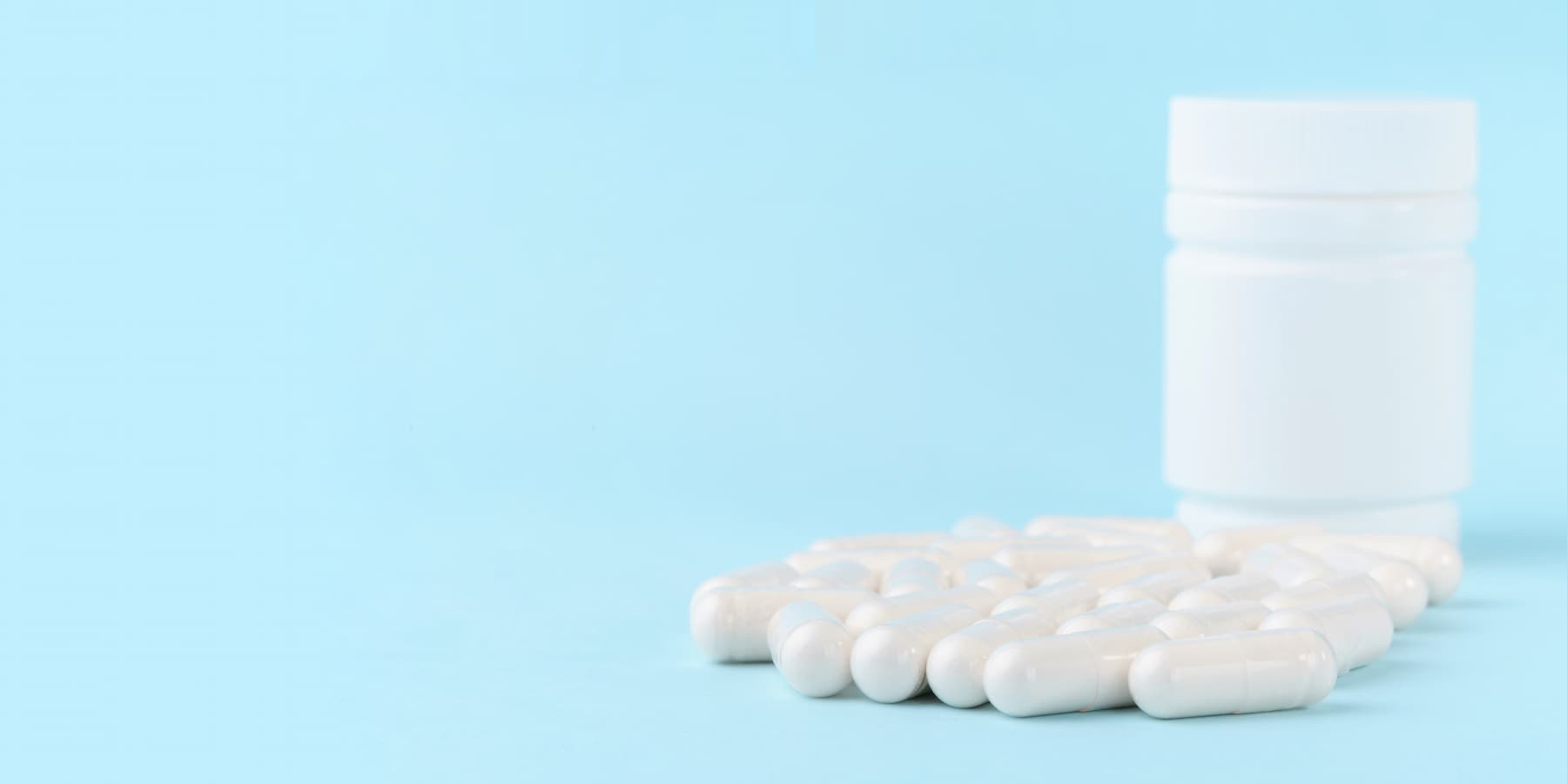
Chondroitin helps the joints and other elements of the body.

Glutathione is one of the most potent antioxidants for supporting the body's health. Find out how it works and where to get it from.

See why hip joints hurt and how to treat their ailments.
